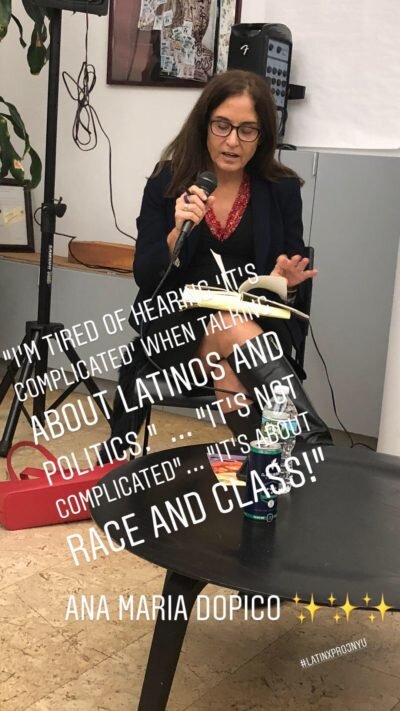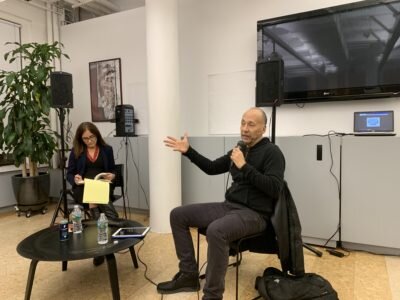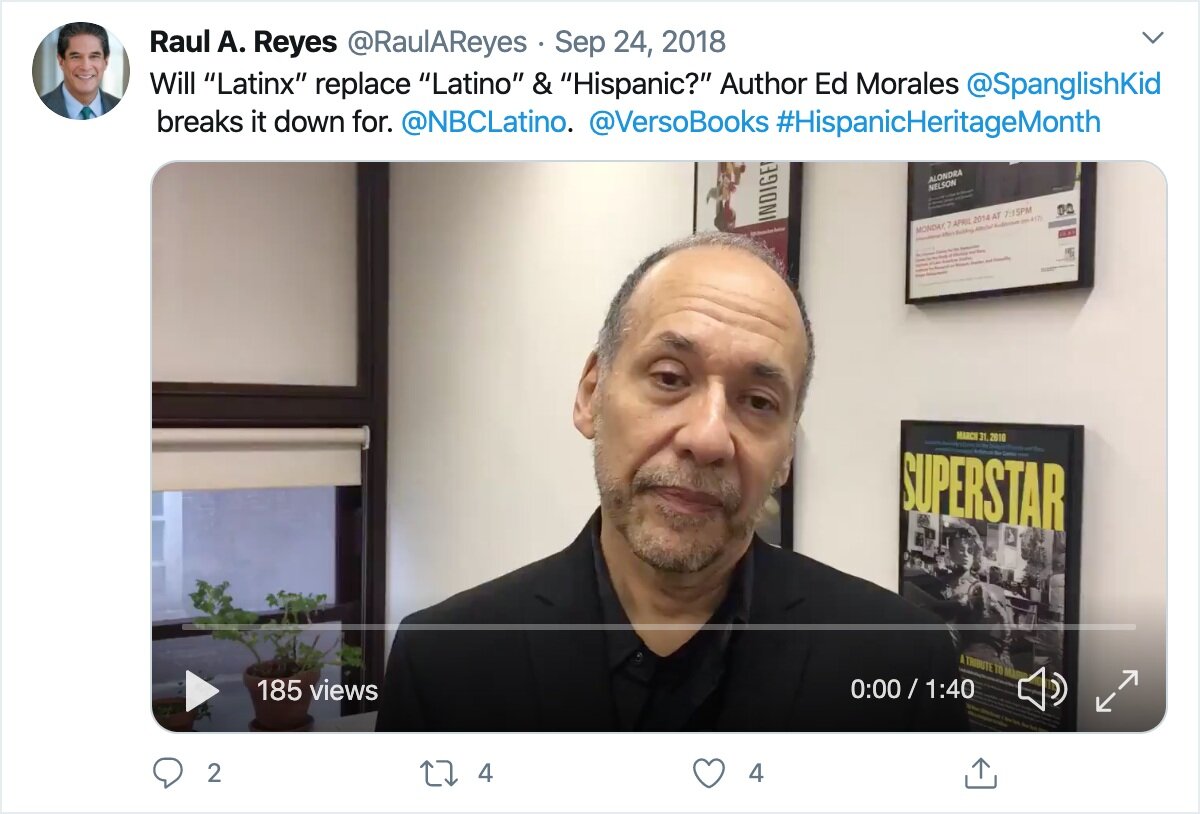Author, Ed Morales and Professor Ana Maria Dopico from New York University’s Department of Spanish and Portuguese discussed Morales’ new book, Latinx: The New Force in American Politics and Culture.
Ed Morales is a journalist who writes about New York City electoral politics, police brutality, street gangs, grassroots activists, and the Latino arts and music scene. He currently lectures at Columbia University’s Center for the Study of Ethnicity and Race, was previously a staff writer for the Village Voice and has published widely. His previous books include Living in Spanglish and The Latin Beat: From Rumba to Rock. He also co-directed the 2009 documentary called “Whose Barrio?” about the gentrification of East Harlem.
His book is about the Latinx political identity and how the confluence of different cultures, races, and languages of Latinx dispute the U.S.’s narrative of a black/white binary. Latinx comprise 58 million people in the U.S. and are the fastest-growing group in the nation, yet are often ignored in discussions of race and ethnicity.
Speaking more specifically about the term ‘Latinx’ to NBC journalist Raul Reyes, Morales says, “Latinx is a fascinating identity because it’s futurist and points to how a society can evolve with lots of different groups coming together for a common cause.”
His op-ed in the Guardian goes further into his reasons for embracing the term. “Like superheroes of color and the possibilities inherent in girls and everyone else who code, Latinx represents an openness that is increasingly under threat in a political climate that is most intent on drawing borders, keeping outsiders out, and using violence to keep it that way.”
Ana Maria Dopico is the first Latina Director of King Juan Carlos I of Spain Center and is an Associate Professor of Comparative Literature and Spanish and Portuguese at New York University.
Event Recap
This event with Ed Morales discussed his new book Latinx: The New Force in American Politics and Culture with Ana Maria Dopico, a cultural critic and the first Latina director of The King Juan Carlos I of Spain Center at New York University. Dopico opened the night by outlining how necessary and wide-ranging this book is. She said it gives us a “deep history of the genealogy of what we’ve inherited, and the intellectual history by which we are named” while also discussing how Latinx are marketed to as economic groups, the histories of cities, the class and racial identities of up and coming politicians, and even film analysis. About three years ago, Morales began to hear the term Latinx in his classroom at Columbia’s Center for Race and Ethnicity and it sparked his idea for this book. There are so many avenues to explore when talking about the history of race for Latinx but Morales has a way of breaking down key moments of our conglomerate history without simplifying it. He goes as far back as referencing the moral discussions about indigenous humanity between Juan Ginés de Sepúlveda and Bartolome de las Casas in the 16th century, white supremacy as seen through Mexican Casta paintings, and what slavery was like in different parts of Latin America. All of this is in an effort to round out the current conversation about where Latinx is today in relation to this strict racial binary of black and white.
And after some talk of complicated racial histories, Dopico brought the discussion full circle to the frightful political time, to discuss the voting patterns of Latinos, especially after the midterm voting results: “I’m tired of hearing ‘oh it’s complicated’ when talking about Latinos and politics. It’s not complicated. It’s about race and class.” Later she added that “there’s a huge terror in this particular reactive moment that something is going to be stripped from you that your aspirational whiteness is going to be taken away.”
But “whiteness is looking really bad now. It’s not the liberal whiteness of the past. It’s looking very ugly so it may be easier for Latino people to move away from whiteness,” Morales said. “[Race] is all a social construct but at the same time that fluidity can be exploited and turned against you politically.”
These are all huge topics to cover in an hour and a half but the discussion was fruitful and we had many people in the audience share their ideas about racial identity and ethnic identifiers. If you haven’t read the book, it’s available on Verso books here. And as Dopico said, “It’s a big and important book, and mandatory for anyone trying to take up this term.”





